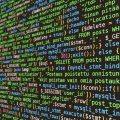Data management, at its core, is the practice of handling, organising, and maintaining digital information in a structured and efficient manner. For both homes and small businesses, effective data management is crucial. Think of your computer’s storage as a digital library. Just as books need to be systematically arranged for easy retrieval, your files, photos, and documents need a structured system. Without proper management, you risk misplacing essential files, slowing down your PC, or even losing data permanently.
For small businesses, this could mean the difference between smooth operations and costly downtimes. For homeowners, it ensures that cherished memories in the form of photos or essential documents are never lost. By grasping the fundamentals of data management, you’re taking the first step towards optimising your PC’s performance and safeguarding your digital assets against potential pitfalls.
Decluttering Your Digital Space
It’s all too easy to accumulate a vast array of files, from work documents to cherished family photos. However, without regular organisation, your computer can quickly become a chaotic mess, leading to decreased performance and increased frustration. Just as you’d spring clean your home, your digital space deserves the same attention. Start by setting aside time each month to review and delete redundant files.
Create a logical directory structure, grouping similar files into designated folders. For instance, all financial documents could reside in a ‘Finances’ folder, while holiday photos might find a home in ‘Summer Hols’. Use clear naming conventions for both files and folders, making future searches straightforward. Syncing regularly used files to cloud storage can also free up valuable hard drive space. By maintaining a tidy digital environment, you’ll not only boost your PC’s efficiency but also make your daily tasks more manageable.
Using Software Tools To Reclaim Hard Drive Space
Over time, our computers inevitably accumulate unnecessary files: temporary data, cached web pages, and remnants of old software. These digital fragments, though often unseen, can eat up significant hard drive space, leading to sluggish performance. Enter the magic of disk cleanup tools. These software solutions delve deep into your PC, identifying and safely removing superfluous files.
With the help of Smallpdf’s tool, you can compress pdf files down to recover hard drive space to improve performance and give you more room for files. This pdf compressor can help you get more from your PC, and still keep your existing pdfs with full functionality. This is a great way to reclaim your disk space.
By running disk cleanups, you can often recover gigabytes of space, giving your computer a noticeable performance boost. It’s akin to clearing out the attic, making room for new data and allowing the system to operate more fluidly. While it’s essential to approach with caution, ensuring you don’t inadvertently delete crucial files, a regular cleanup can be a game-changer for maintaining optimal PC health.
Avoiding Common Pitfalls
Every PC user, whether a tech novice or a seasoned expert, can inadvertently make errors that hamper their computer’s performance. One common mistake is allowing too many programmes to run at startup. While some are essential, others merely drain resources, causing your PC to boot up at a snail’s pace. Regularly review and disable non-essential startup applications to ensure a swifter start.
Another frequent oversight is neglecting software updates. These updates not only introduce new features but also fix bugs and enhance security. Ignoring them can leave your system vulnerable and outdated. Additionally, downloading files or software from untrustworthy sources can introduce malware, which not only poses a security risk but can also slow down your system. By being aware of these common pitfalls and taking proactive measures, you can ensure your computer runs efficiently and remains secure.
Optimising Your PC’s Performance
While software tweaks and regular maintenance play a pivotal role in keeping a computer running smoothly, there comes a time when hardware upgrades become essential. As technology rapidly evolves, older components can struggle to keep up with the demands of modern applications and tasks. For instance, upgrading your RAM can provide a significant boost, especially if you frequently run multiple applications simultaneously.
Similarly, switching from a traditional Hard Disk Drive (HDD) to a Solid State Drive (SSD) can drastically improve boot times and application responsiveness. For businesses in the UK, investing in a robust graphics card might be crucial if tasks involve graphic design or video editing. Even simple additions, like an external cooling fan, can enhance performance by preventing overheating. Before splurging on the latest components, it’s wise to assess your specific needs and consult local British tech experts to ensure compatibility and maximise the return on investment.
The Importance Of Regular PC Maintenance
Just as a car requires regular servicing to run optimally, PCs and laptops benefit immensely from consistent maintenance. For homeowners, this means safeguarding cherished memories and ensuring smooth daily operations. For small businesses, the stakes are even higher: a well-maintained computer system can be the backbone of efficient operations, directly impacting profitability. Regular updates keep the software current, patching vulnerabilities and enhancing functionality.
Dust accumulation, often overlooked, can lead to overheating and reduced performance; hence, periodic physical cleaning is essential. Defragmenting hard drives, a practice of reordering stored data can also boost speed and efficiency. In essence, regular PC maintenance is not just a recommendation; it’s a necessity. By investing time in upkeep, you’re ensuring longevity, optimal performance, and, ultimately, peace of mind in the digital realm.
The relationship we have with our computers extends beyond mere ownership. It’s a journey of understanding, adaptation, and proactive engagement. From grasping the foundational tenets of data management to recognising the transformative power of timely hardware upgrades, every step we take shapes our digital experience. Homeowners find solace in knowing that their cherished memories and essential documents are safeguarded, while small businesses recognise the undeniable link between optimal PC performance and business success.
The insights and recommendations shared throughout this guide serve as a roadmap, illuminating the path towards maximised efficiency and reliability. But beyond the technicalities and best practices lies a broader message: the importance of evolving with technology, staying informed, and being proactive in our digital interactions.
As we stand on the cusp of further technological advancements, let’s pledge to not just be passive users but informed digital citizens. By internalising the knowledge shared and applying it diligently, we set the stage for a future where our digital interactions are seamless, productive, and immensely rewarding.







